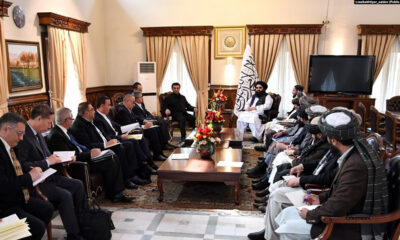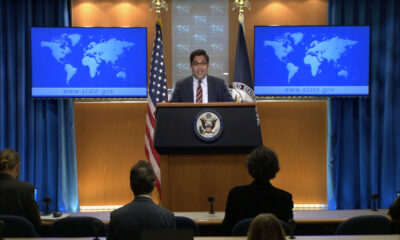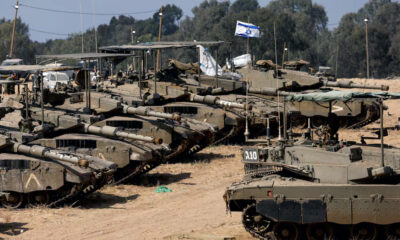Latest News
Beijing hosts Afghan delegation for talks on a wide range of issues

The third meeting of the China-Afghanistan working-level liaison mechanism on humanitarian assistance and economic reconstruction was held in Beijing this week where in-depth talks were held on numerous issues relating to Afghanistan.
Liu Jinson, Director of the Asian Department of China’s Ministry of Foreign Affairs, and Jalali, Director of the Third Political Department of the Ministry of Foreign Affairs of Afghanistan, co-chaired the Beijing meeting.
Also in attendance were representatives from various Chinese commissions, government departments, international aid organizations, as well as the Afghan Ministry of Commerce and Industry, the Ministry of Mines and Petroleum, the Ministry of Disaster Management, and the Ministry of Refugee Affairs.
Quoting an Afghan proverb, Liu said at the meeting that “friends come and go, but neighbors always remain.”
He pointed out that since 2021, China has implemented a diplomatic concept of amity, sincerity, mutual benefit and inclusiveness that was proposed by President Xi Jinping in terms of Beijing’s dealings with Afghanistan.
China has also adhered to a friendly policy towards all Afghan people, and adhered to the principle of respect for the country’s independence, sovereignty and territorial integrity.
He also said that during the different regimes in Afghanistan, China has always provided support and assistance for Afghanistan’s peaceful reconstruction and economic development.
The Afghan delegation meanwhile stated that the Islamic Emirate attaches great importance to developing relations with China, and thanked China for taking the lead in sending a new ambassador to Afghanistan and accepting the appointment of an ambassador to China.
The Islamic Emirate said Afghanistan is willing to deepen friendly relations with China, maintain traditional friendship, and will, as always, support China in safeguarding its core interests and achieving national reunification.
The two sides agreed in the meeting that Afghanistan is currently facing multiple challenges such as floods, droughts, and refugee resettlement, among other issues.
They also noted that the freezing of Afghanistan’s foreign assets by the United States has “aggravated the suffering of the Afghan people.”
The IEA stated however that it was “very grateful to China for its humanitarian assistance over the years and hopes to continue to receive help from China in refugee resettlement, disaster prevention and mitigation, improvement of medical and health conditions, and treatment of children with congenital heart disease.”
On the Belt and Road initiative, the IEA delegation said Afghanistan is deeply satisfied with the progress in practical cooperation between the two countries. They also said Afghanistan is willing to learn from China’s experience in modernization and development, and hopes that China will help Afghanistan cultivate more professional talents.
China meanwhile urged the international community to step up humanitarian assistance to Afghanistan, and said Beijing hopes the IEA will “actively respond to some of the international community’s reasonable concerns about Afghanistan’s inclusive governance.”
Liu in turn acknowledged the IEA’s efforts to promote economic reconstruction and said bilateral trade volume between China and Afghanistan reached US$1.33 billion last year, a record high and a year-on-year increase of 125.4%.
The Islamic Emirate meanwhile said in posts on X that the issue of investment opportunities in Afghanistan was widely discussed and both sides welcomed moves to pave the way for the export of pomegranates.
“Also, both sides talked about the latest developments in increasing the level of oil extraction in Afghanistan and starting the extraction of Logar’s Mes Aynak mine and it was emphasized that plans should be considered to speed things up,” the IEA stated.
“The Afghan side welcomed the capacity building training programs of civil servants in many ministries and agencies of the Afghan government with the support of China. In addition, the Chinese side promised to expand the range of scholarships to Afghan students according to the needs of Afghanistan,” the IEA stated.
Latest News
Washington sees interaction with IEA as opportunity to protect its national interests
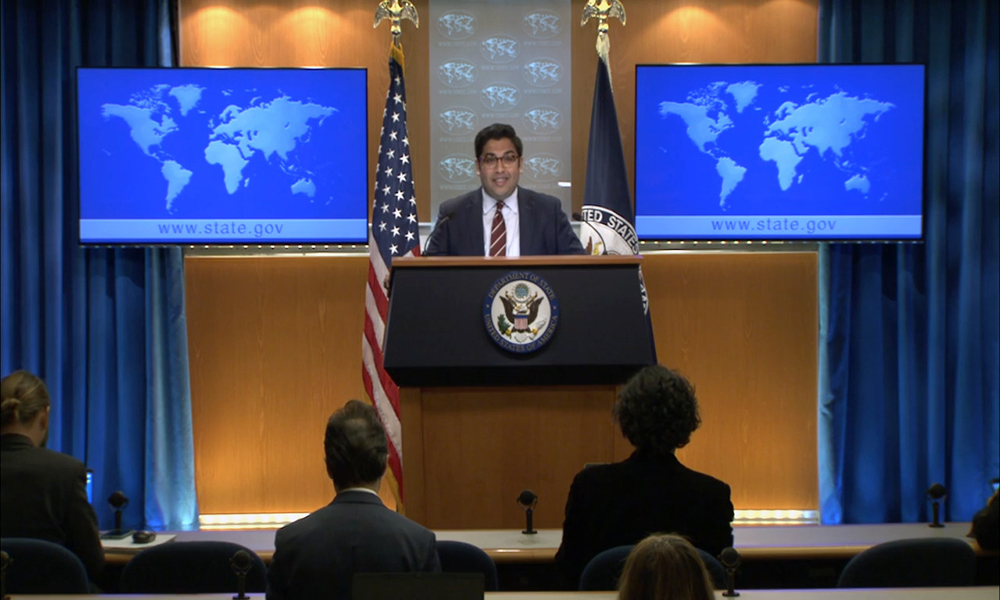
The Deputy Spokesman of the US State Department says that when the interests of his country are involved, Washington will not hesitate to interact with the Islamic Emirate.
Vedant Patel said that interaction with the Islamic Emirate is not only the best way to protect the interests of America, but also to support the people of Afghanistan.
Speaking at a press conference on Tuesday, he said interaction with the Islamic Emirate provides the basis for a direct dialogue with them.
According to Patel, this interaction is an opportunity to continue the pressure on the Islamic Emirate for the immediate and unconditional release of American citizens, including those who have been caught “unjustly”.
Patel added that the United States would also take advantage of these opportunities to talk directly with the Islamic Emirate about commitments to counter terrorism. He emphasized that Washington human rights issues are also on the agenda.
Latest News
World Bank donates $84 million to Afghanistan

The World Bank announced Tuesday it has approved $84 million in aid to Afghanistan in order to fight the economic crisis and implement livelihood projects in the country.
According to a statement, this “complements $70 million in additional financing from the Afghanistan Resilience Trust Fund (ARTF).”
The project was started in 2022 with a grant of $265 million from the ARTF to provide livelihoods support and services in rural and urban areas, support social grants for women and the most vulnerable, and strengthen community institutions for inclusive service delivery.
With this additional financing, the project will scale up activities in more rural and urban areas, provide more livelihood opportunities for women, expand activities focused on building climate resilience, and provide employment and services to returning Afghan migrants, the World Bank stated.
Melinda Good, World Bank Country Director for Afghanistan, said: “In the past 18 months, the project has laid the foundation for an effective service delivery platform and operational model at scale for delivering jobs, providing essential services and assets, and, importantly, reaching women.
“With the additional financing, the project will continue its essential works in all six regions of the country, 26 of the 34 provinces, 67 rural districts, 6,200 rural communities, and eight major cities,” she said.
To date, the project has provided short-term employment to over 776,000 households, benefiting around 5.4 million Afghans, and about 92,200 vulnerable households received cash transfers or in-kind social grants, with a significant portion being female-headed households or those with disabled members.
Approximately 7.4 million Afghans gained access to services like roads, sanitation, and water supply, and more than 2.1 million community members received training in health and nutrition, the effects of climate change and disaster risk management.
In addition, the project has helped create a market for local civil works and preserve local contractors’ capacities built over the last two decades.
An estimated 2,200 highly skilled market-driven jobs have also been created.
The project is implemented by UNOPS, which facilitates international and local NGO partners and local private sector contractors to implement activities in rural and urban areas.
Latest News
Save the Children sends plane with 92 tonnes of medicines to Afghanistan

A plane carrying 92 tonnes of vital medicines has arrived in Afghanistan to treat about 675,000 people, including children, with life-threatening but treatable illnesses after an increase in respiratory infections and measles this year, Save the Children said on Tuesday.
The consignment – the largest delivered by Save the Children in a year – will provide lifesaving treatment for nearly 400,000 children afflicted by endemic childhood illnesses such as respiratory tract infections, pneumonia, acute watery diarrhoea, and skin diseases, the organization said in a statement.
Since the beginning of 2024, more than 1,000 children under the age of 5 have died after contracting pneumonia, comprising 88% of all deaths from respiratory infection.
The current number of cases is higher than the average number reported during the past three years, according to the World Health Organisation.
The number of measles cases among children under five has risen by 44% compared with the same period last year, the statement said.
“Too many children in Afghanistan die from easily preventable diseases and illnesses. The arrival of these medicines means that more than 400,000 children will receive potentially lifesaving treatment in some of the most remote areas of the country,” said Arshad Malik, Country Director for Save the Children in Afghanistan.
He added that every day around the world, roughly 16,000 children under the age of 5 will die from common illnesses that can be prevented and treated.
The medicines, which are worth about US $590,000, were donated by the Dutch Relief Alliance (DRA), the European Union Humanitarian Aid (ECHO), the German Federal Foreign Office (GFFO), USAID’s Bureau for Humanitarian Assistance (BHA) and Save the Children’s internal Humanitarian Fund, among other organisations.
-

 Latest News4 days ago
Latest News4 days agoPakistan extends registered Afghan refugees’ stay till June 30
-

 Sport3 days ago
Sport3 days agoAfghanistan qualify for FIFA Futsal World Cup for first time ever
-

 Regional4 days ago
Regional4 days agoChina to host Hamas, Fatah for Palestinian unity talks
-

 Latest News5 days ago
Latest News5 days agoTripartite trade meeting held in Kabul to boost regional connectivity
-
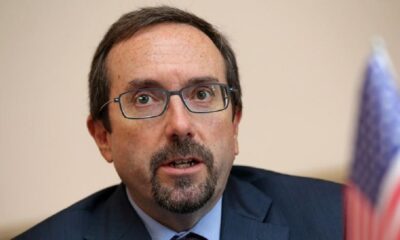
 Latest News4 days ago
Latest News4 days agoUS diplomat Bass travels to Qatar and Pakistan to discuss Afghanistan, regional issues
-

 Sport4 days ago
Sport4 days agoAsia must believe Afghanistan’s power in futsal: Mortezaei
-
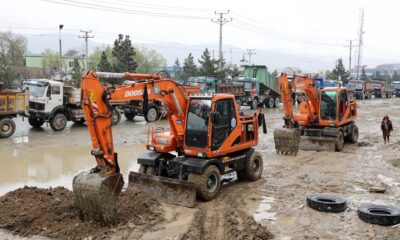
 Latest News4 days ago
Latest News4 days agoThree road construction projects launched in Kabul
-
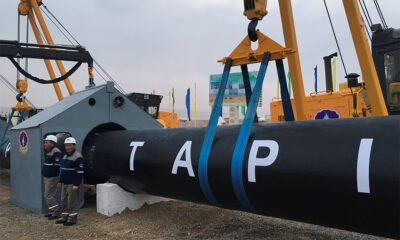
 Latest News3 days ago
Latest News3 days agoTurkmenistan committed to complete TAPI energy project


